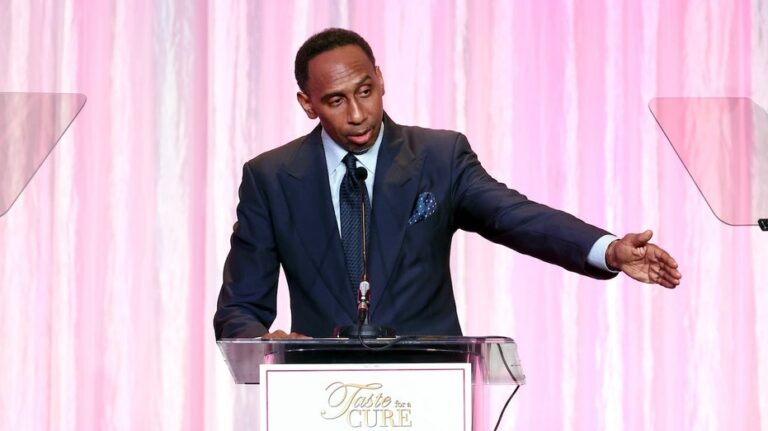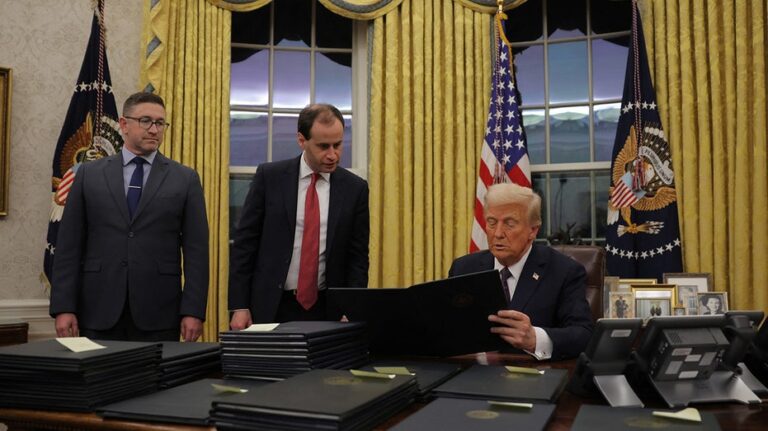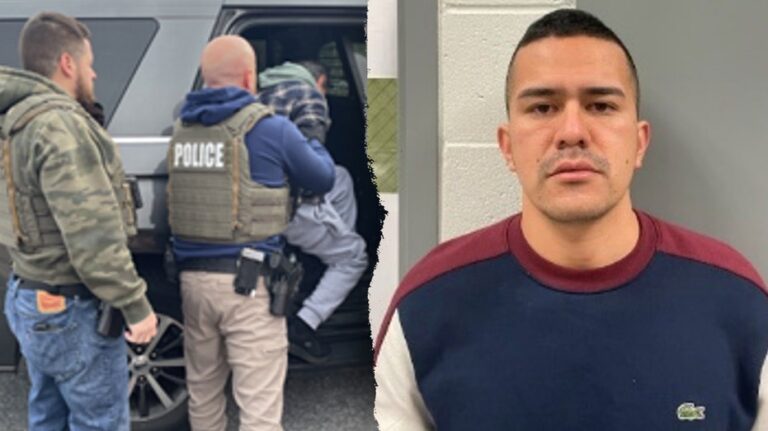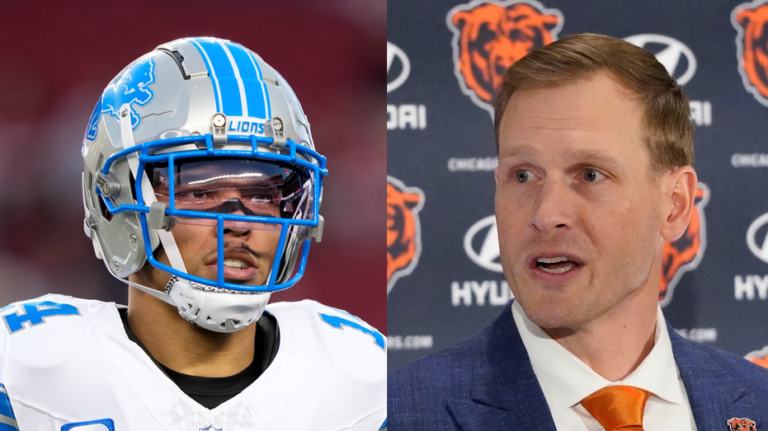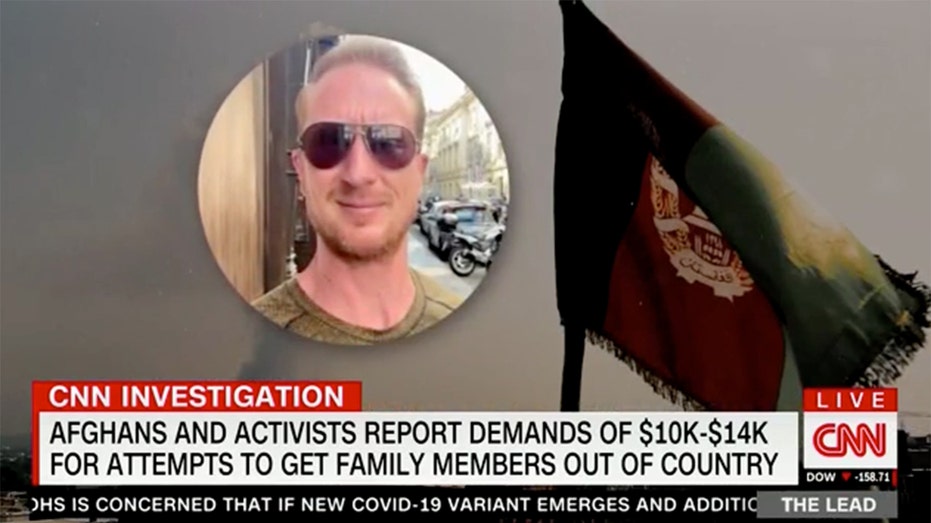
Lawyers delivered powerful closing arguments on Thursday as U.S. Navy veteran Zachary Young’s high-profile defamation trial against CNN heads to the jury.
Young alleges CNN smeared him in a November 2021 report by correspondent Alex Marquardt that first aired on “The Lead with Jake Tapper,” suggesting he illegally profited off desperate people trying to flee Afghanistan following the Biden administration’s military withdrawal, implying he was involved in “black market” dealings and ruining his professional reputation as a result.
“It was a calculated attack by CNN on his character that has inflicted deep and lasting wounds,” Young’s lead counsel Vel Freedman told jurors.
“Zak’s ability to walk into a room with pride and being seen as a professional with integrity has been stripped away. His pain and suffering, mental anguish, seeing his name dragged through the mud,” Freedman added. “These are injuries that transcend monetary loss. They pierce the soul of who he is, who he was.”
Freedman said the “scars of this humiliation… will never go away,” and reminded jurors that Young testified to being on medication and in treatment for depression and panic attacks.
“This was a former Navy SEAL trainee, a CIA operative, he can’t function anymore,” Freedman said.
“No man or woman should have to endure that pain,” he continued. “And certainly not because [CNN] wants clicks and views.”
Freedman accused CNN of “deliberately” leaving out key facts from the on-air report that was shown on multiple programs, such as that Young “never expected Afghans to pay” any fees and that he was only working with corporate sponsors.
CNN DEFAMATION TRIAL: NETWORK’S FAIRNESS CHIEF DEFENDS CONTROVERSIAL REPORT AT CENTER OF LAWSUIT
Freedman also reminded jurors that many CNN staffers testified that the “black market” term was accurate and others said the network’s on-air apology was not necessary. CNN senior vice president of news and executive editorial director Adam Levine even admitted under oath that CNN only apologized to Young for legal purposes.
“None of them are sorry. All of them said they would do it again,” Freedman told jurors.
Freedman pointed to Levine’s testimony that there was “no conspiracy” against Young but told jurors that rhetoric in CNN’s internal documents proves otherwise.
He called for jurors to “change the course of history” by holding CNN accountable and “cure this injustice.”
Freedman also summarized who Young was prior to the CNN segment, discussing his relationships with his mother, wife and professional and military background. He referred to Young as a “former spy,” who was trained by the Central Intelligence Agency, Blackwater and Navy SEALs.
“Zak was at the peak of his professional career,” Freedman said.
Young has testified that he helped rescue at least 22 women and one baby from Afghanistan on behalf of corporate sponsors, including Bloomberg Media and Amazon-owned Audible. While that was omitted from the CNN report, Freedman told jurors that Young was painted as a “predator” operating on the “black market.”
Freedman also reminded jurors of some major highlights of the eight-day trial, such as CNN reporter Katie Bo Lillis not revealing to Young that he would be the focus of a story, Marquardt admitting he had no evidence Young took advantage of any Afghans, Jake Tapper’s teasers used to promote the segment about “desperate Afghans being preyed on,” salty language used to describe Young found on CNN internal communications and video of Marquardt joking that his alleged phone call to Young was “theater.”
Freedman noted that Young’s past contract stated he would be terminated for operating on a “black market,” and suggested a conspiracy was occurring after seven different CNN staffers defined the term as “unregulated” instead of illegal.
“Do not allow CNN to rewrite the English language to avoid liability in this case,” Freedman said.
Freedman also argued that CNN’s internal mentions of “extortion” and “fraud” from the report’s inception make it clear the network knew from the beginning that they were investigating Young for illegal activity, undercutting how they define “black market.”
“You have a tool to save American media. It’s called punitive damages. Use it,” Freedman said.
“Use your common sense. What was he hiding? CNN had the facts,” he said, telling jurors they were the “arbiters of justice and that their decision could “send a message to other media companies.”
CNN lead counsel David Axelrod, who shares a name with the network’s on-air pundit, delivered the defense’s closing remarks. He began by urging the jury to really look at the evidence and “do the right thing,” instructing them to use “common sense.”
Axelrod cautioned that he would repeatedly use the term “common sense” during his remarks.
“Are you seeing a conspiracy or are you seeing folks trying to do their best?” Axelrod asked.
He told them their job is not to “deliver a message” to the media but rather to use common sense and determine what actually happened. Axelrod called CNN’s reporting “tough but fair,” and suggested Young “put himself” in the story with LinkedIn messages visible to Afghans.
He suggested Young didn’t suffer any actual damages, telling jurors that no witnesses showed up to say they didn’t hire him because of the CNN report. Axelrod told jurors that an activist named Jill Kornetsky tipped CNN reporters off to Young because he was “out there on LinkedIn” offering his services and she “saw it as something wrong.”
Axelrod hit Young for a prior admission that he didn’t doubt Marquardt attempted to call him during a pre-trial deposition, suggested CNN has a strong fact-checking apparatus, dismissed the notion that two hours was not enough time for Young to respond with his side of the story before CNN aired its report, and insisted the story didn’t focus on Young solely and used his own words and messages.
“He didn’t want the story to come out,” Axelrod said.
“It doesn’t mean that CNN defamed him,” Axelrod added. “If this was trying to harm Mr. Young because they hate him, why would they include his own words?”
Axelrod said the definition of “black market” doesn’t matter because when looking at the words “in context,” it was used in an “accurate” way to describe the situation in Afghanistan.
Axelrod argued that more people watched the on-air apology more than the original report itself, omitting that the report aired more on CNN than the apology itself. He also dismissed staffers who disagreed with the apology, saying if Young never filed a lawsuit, the apology would have been the final word on the matter.
CNN’s lawyer also touted the network’s journalism ethics and accused Young of misleading doctors when claiming he was in Afghanistan during the evacuations to get a stronger diagnosis about his mental health.
“At the end of the day you need to look at all the evidence and see if it makes sense… use your common sense,” Axelrod said.
“Defamation is called defamation because it hurts someone,” he added. “There are no witnesses to support that. Not a single one.”
Axelrod also suggested Young might have deleted LinkedIn messages in which he talked money with Afghans, reminded jurors the plaintiff relied largely on paid expert witnesses and pointed out that no Austrian doctors were called, as Young currently resides in Austria. He said CNN was not “negligent,” the publication did not imply that Young was taking money directly from Afghans and that nobody other than Young himself viewed the story in a negative way.
“Use your common sense,” Axelrod told jurors, adding that punitive damages are “not warranted.”
The ongoing trial can be streamed live here.
Lawyers delivered powerful closing arguments on Thursday as U.S. Navy veteran Zachary Young’s high-profile defamation trial against CNN heads to the jury.
Young alleges CNN smeared him in a November 2021 report by correspondent Alex Marquardt that first aired on “The Lead with Jake Tapper,” suggesting he illegally profited off desperate people trying to flee Afghanistan following the Biden administration’s military withdrawal, implying he was involved in “black market” dealings and ruining his professional reputation as a result.
“It was a calculated attack by CNN on his character that has inflicted deep and lasting wounds,” Young’s lead counsel Vel Freedman told jurors.
“Zak’s ability to walk into a room with pride and being seen as a professional with integrity has been stripped away. His pain and suffering, mental anguish, seeing his name dragged through the mud,” Freedman added. “These are injuries that transcend monetary loss. They pierce the soul of who he is, who he was.”
Freedman said the “scars of this humiliation… will never go away,” and reminded jurors that Young testified to being on medication and in treatment for depression and panic attacks.
“This was a former Navy SEAL trainee, a CIA operative, he can’t function anymore,” Freedman said.
“No man or woman should have to endure that pain,” he continued. “And certainly not because [CNN] wants clicks and views.”
Freedman accused CNN of “deliberately” leaving out key facts from the on-air report that was shown on multiple programs, such as that Young “never expected Afghans to pay” any fees and that he was only working with corporate sponsors.
CNN DEFAMATION TRIAL: NETWORK’S FAIRNESS CHIEF DEFENDS CONTROVERSIAL REPORT AT CENTER OF LAWSUIT
Freedman also reminded jurors that many CNN staffers testified that the “black market” term was accurate and others said the network’s on-air apology was not necessary. CNN senior vice president of news and executive editorial director Adam Levine even admitted under oath that CNN only apologized to Young for legal purposes.
“None of them are sorry. All of them said they would do it again,” Freedman told jurors.
Freedman pointed to Levine’s testimony that there was “no conspiracy” against Young but told jurors that rhetoric in CNN’s internal documents proves otherwise.
He called for jurors to “change the course of history” by holding CNN accountable and “cure this injustice.”
Freedman also summarized who Young was prior to the CNN segment, discussing his relationships with his mother, wife and professional and military background. He referred to Young as a “former spy,” who was trained by the Central Intelligence Agency, Blackwater and Navy SEALs.
“Zak was at the peak of his professional career,” Freedman said.
Young has testified that he helped rescue at least 22 women and one baby from Afghanistan on behalf of corporate sponsors, including Bloomberg Media and Amazon-owned Audible. While that was omitted from the CNN report, Freedman told jurors that Young was painted as a “predator” operating on the “black market.”
Freedman also reminded jurors of some major highlights of the eight-day trial, such as CNN reporter Katie Bo Lillis not revealing to Young that he would be the focus of a story, Marquardt admitting he had no evidence Young took advantage of any Afghans, Jake Tapper’s teasers used to promote the segment about “desperate Afghans being preyed on,” salty language used to describe Young found on CNN internal communications and video of Marquardt joking that his alleged phone call to Young was “theater.”
Freedman noted that Young’s past contract stated he would be terminated for operating on a “black market,” and suggested a conspiracy was occurring after seven different CNN staffers defined the term as “unregulated” instead of illegal.
“Do not allow CNN to rewrite the English language to avoid liability in this case,” Freedman said.
Freedman also argued that CNN’s internal mentions of “extortion” and “fraud” from the report’s inception make it clear the network knew from the beginning that they were investigating Young for illegal activity, undercutting how they define “black market.”
“You have a tool to save American media. It’s called punitive damages. Use it,” Freedman said.
“Use your common sense. What was he hiding? CNN had the facts,” he said, telling jurors they were the “arbiters of justice and that their decision could “send a message to other media companies.”
CNN lead counsel David Axelrod, who shares a name with the network’s on-air pundit, delivered the defense’s closing remarks. He began by urging the jury to really look at the evidence and “do the right thing,” instructing them to use “common sense.”
Axelrod cautioned that he would repeatedly use the term “common sense” during his remarks.
“Are you seeing a conspiracy or are you seeing folks trying to do their best?” Axelrod asked.
He told them their job is not to “deliver a message” to the media but rather to use common sense and determine what actually happened. Axelrod called CNN’s reporting “tough but fair,” and suggested Young “put himself” in the story with LinkedIn messages visible to Afghans.
He suggested Young didn’t suffer any actual damages, telling jurors that no witnesses showed up to say they didn’t hire him because of the CNN report. Axelrod told jurors that an activist named Jill Kornetsky tipped CNN reporters off to Young because he was “out there on LinkedIn” offering his services and she “saw it as something wrong.”
Axelrod hit Young for a prior admission that he didn’t doubt Marquardt attempted to call him during a pre-trial deposition, suggested CNN has a strong fact-checking apparatus, dismissed the notion that two hours was not enough time for Young to respond with his side of the story before CNN aired its report, and insisted the story didn’t focus on Young solely and used his own words and messages.
“He didn’t want the story to come out,” Axelrod said.
“It doesn’t mean that CNN defamed him,” Axelrod added. “If this was trying to harm Mr. Young because they hate him, why would they include his own words?”
Axelrod said the definition of “black market” doesn’t matter because when looking at the words “in context,” it was used in an “accurate” way to describe the situation in Afghanistan.
Axelrod argued that more people watched the on-air apology more than the original report itself, omitting that the report aired more on CNN than the apology itself. He also dismissed staffers who disagreed with the apology, saying if Young never filed a lawsuit, the apology would have been the final word on the matter.
CNN’s lawyer also touted the network’s journalism ethics and accused Young of misleading doctors when claiming he was in Afghanistan during the evacuations to get a stronger diagnosis about his mental health.
“At the end of the day you need to look at all the evidence and see if it makes sense… use your common sense,” Axelrod said.
“Defamation is called defamation because it hurts someone,” he added. “There are no witnesses to support that. Not a single one.”
Axelrod also suggested Young might have deleted LinkedIn messages in which he talked money with Afghans, reminded jurors the plaintiff relied largely on paid expert witnesses and pointed out that no Austrian doctors were called, as Young currently resides in Austria. He said CNN was not “negligent,” the publication did not imply that Young was taking money directly from Afghans and that nobody other than Young himself viewed the story in a negative way.
“Use your common sense,” Axelrod told jurors, adding that punitive damages are “not warranted.”
The ongoing trial can be streamed live here.

